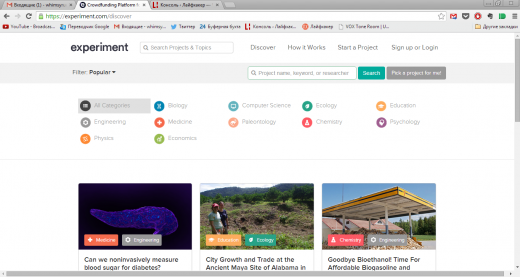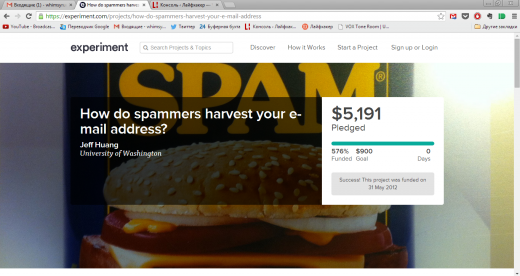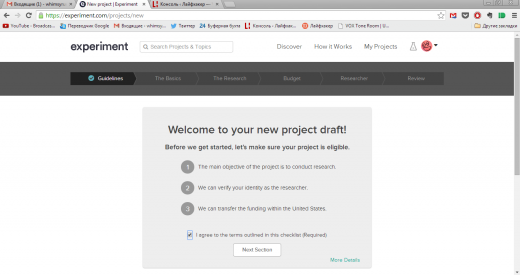Kickstarter proved to everyone that voluntary donations are the future of projects that need funding. Who would have thought that with the help of donations, you can create multimillion-dollar projects. But despite the fact that Kickstarter is the largest crowdfunding platform, it does not cover all areas of activity. Because of this, projects such as Trevolta — crowdfunding for travelers and Experiment — a platform where you can find funding for your scientific experiments.
If you are familiar with Kickstarter, you will immediately understand the concept of Experiment. But if not, then let's take a closer look. Experiment allows you to be on both sides of science at once. You can finance other people's research if you liked it, and you can also create your own project. And if it resonates in the minds of other users, you will receive money for its implementation. Experiments are divided into categories: biology, medicine, computer technology, engineering, and so on. In each topic, you can find a lot of really interesting projects.

For example, the creator of one of these projects intends to find out how spammers collect a database of e-mail addresses. Compared to Kickstarter, the funding amounts are small and range from $500 to $5,000. This is not surprising, because you do not need to create a product to conduct experiments and, as a result, you do not need production facilities.

Many experiments collect the necessary amount of funds and even more. The anti-spammers project raised 9 times more money than was required.

To create your own project, you need to complete 6 points. Each of them boils down to providing information about yourself and your offspring. Get ready to describe yourself, your project, and your activity in every detail. Remember every little thing. You also need to estimate in advance how much money you need to implement the experiment. Naturally, you should not put the amount at $ 5,000 if you know that you need ten times less for the project. But if you are smart enough to conduct your own scientific experiment, then I hardly need to talk about such things.

Experiment takes 5% of the amount. Another 3% goes as a fee for using credit cards. The service is quite popular in the USA and, of course, less popular with us. Even if you don't know English, but you think your project is cool enough for people to believe in it, ask your English-speaking friends to help with the translation and upload it to Experiment. In the name of science! Experiment